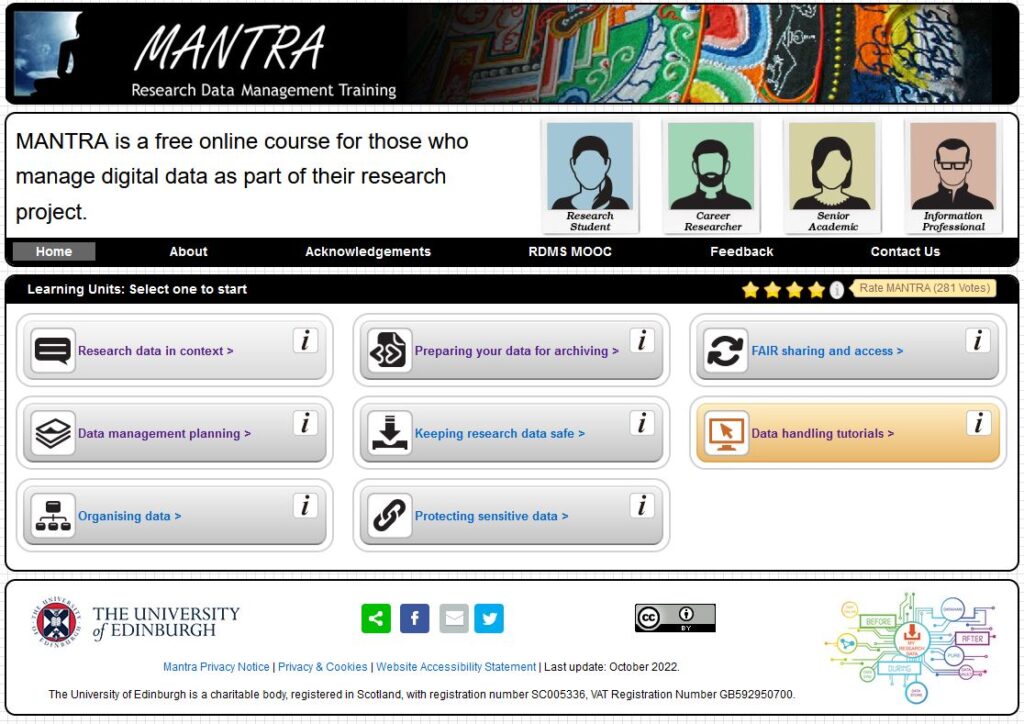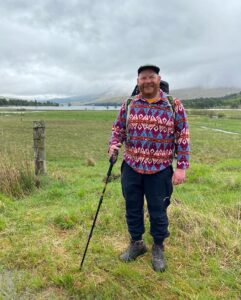This is a guest blog post from Emma Wilson, Emma is a final year PhD student in the Centre for Clinical Brain Sciences. She is currently interning with the Library Open Research Team.
On 29th May 2024, we held the third annual Edinburgh Open Research Conference online and in person at the John McIntyre Conference Centre. Over 300 people attended the hybrid event, from Edinburgh and further afield, to listen to a jam-packed programme of talks and posters on all things open research.
This year’s theme was culture change, and thinking about how open research principles can steer us towards healthy and inclusive research environments.
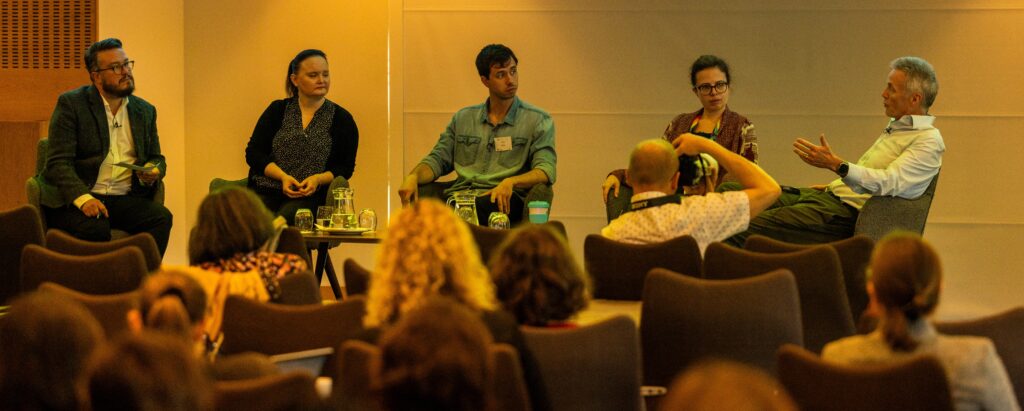
Plenary panel – photo credit: Eugen Stoica
The events kicked off with a plenary panel featuring Nick Wise (University of Cambridge), Rowena Lamb, Malcolm Macleod, and Katie Nicoll Baines (all University of Edinburgh) discussing the ways in which we can drive healthy and sustainable culture change and how this applies in the context of open research.
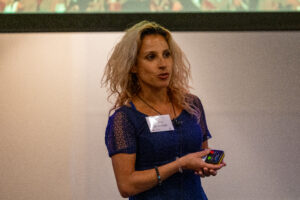
Marisa de Andrade delivering her keynote – photo credit: Eugen Stoica
Presentations and lightning talks touched on the topics of education and skills, research culture change, and next generation metrics. We heard from a diverse range of perspectives including technicians, researchers in both STEM and the humanities, and professional services staff. Equality, diversity, and inclusion (EDI) was a strong theme running throughout each of the presentations.
The keynote lecture was delivered by Marisa de Andrade on ‘The Madness of Metrics and Possibilities of Pause in Open Research’, which offered perspective on research metrics, what they really mean, and what really matters.
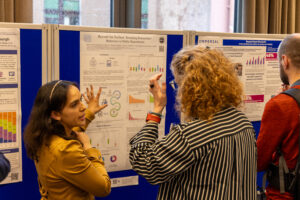
Poster session – Photo credit: Eugen Stoica
Following a busy day, the conference closed with a drinks reception and posters. Each presenter gave a quick-fire summary of their poster in a round of ‘Minute Madness’.
We want to thank everyone who attended the conference, our fantastic presenters, and of course our organisers Kerry Miller and Nel Coleman for making the day enjoyable and insightful. And if you missed it, be sure to come along next year!
Stay up to date on open research activities and future conference announcements by signing up to the Edinburgh Open Research Newsletter and joining our Edinburgh Open Research Initiative Microsoft Teams group.

